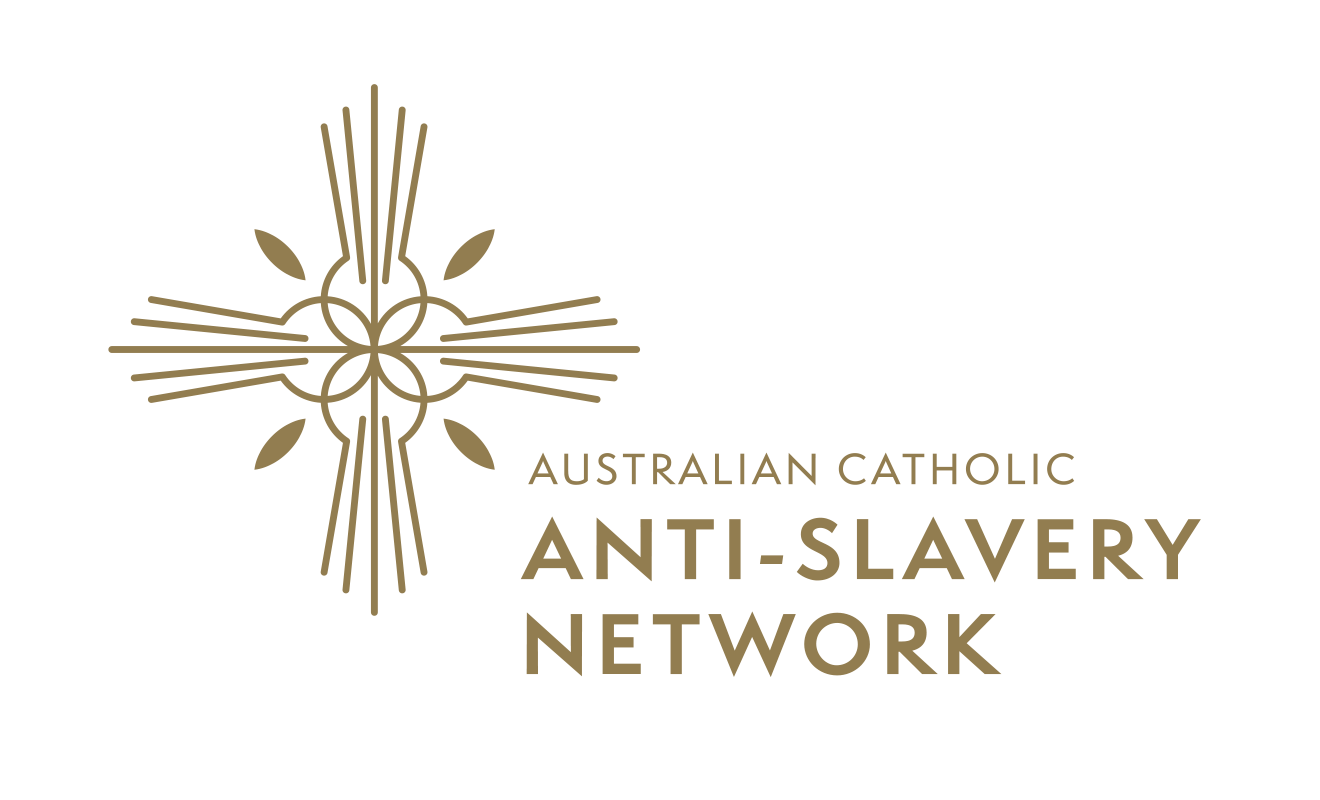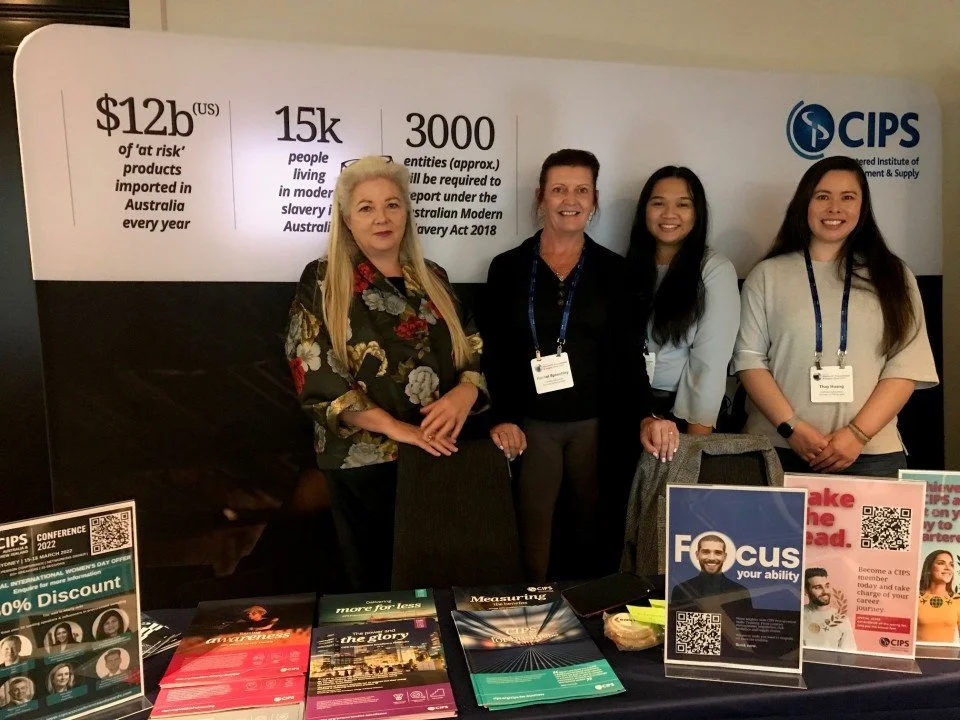Procurement Officers as the new human rights champions
By Alison Rahill
Suffering is very close to home in these days of war, floods and the pandemic.
Our colleagues, families, friends, and communities are experiencing hardship, displacement, injury and illness. The pain is real. It’s visible and it’s often personal.
The field of modern slavery that I’ve worked in for the last seven years is very different. People impacted by modern slavery are mostly invisible to us. “Hidden in plain sight” or hidden in a supply chain, de-personalised and anonymous.
Yet there are 41 million people living in modern slavery around the world, according to the Global Slavery Index, including 30 million on our doorstep in the Asia-Pacific region. Victims of modern slavery – more than 70% are women and girls.
Among all this suffering, seen and unseen, I still see possibility and hope.
If there is one upside from the pandemic, it’s that scrutiny and awareness of supply chains have never been greater in Australia.
The Business and Human Rights space is growing in importance, and investors are increasingly interested in the ESG (Environmental, Social, and Governance) corporate performance and disclosures.
Across the world, new legislation such as mandatory human rights due diligence is spreading.
In the years ahead the focus on the ‘S’ in ESG – and the response of corporations human rights abuses such as modern slavery will only become more complex and demanding.
So who are the social justice warriors with the power to drive modern slavery out of Australian supply chains?
Meet your organisation’s procurement officer.
Due diligence of potential suppliers, sourcing strategies, supplier engagement, codes of conduct, tender processes, awarding contracts and clauses that enable investigation, site visits, access to workers, agreed corrective action plans, remediation and termination only as a last resort.
All of these actions are a part of the procurement officer’s armoury.
In my view, work in procurement and supply chains has great potential to bring lift people out of modern slavery.
In particular, how procurement officers and the companies they work for respond to the Australian Government’s Modern Slavery Act 2018 and other similar laws around the world, can make a world of difference.
The Modern Slavery Act came into effect just three years ago, and is providing an opportunity to embed modern slavery risk management across the life cycle of procurement.
Although the mandatory reporting requirements of the Act are a corporate compliance activity, it is the procurement managers who must take action.
The Catholic Church in Australia, together with its schools and agencies have done a lot of work over several years now to put the Church in Australia in a position to respond to the risks of modern slavery in its very extensive supply chains.
The strong leadership of Pope Francis has been an inspiration for us. The Holy Father was closely involved in the setting of UN Sustainable Development Goal 8.7 about modern slavery, and speaks strongly and often on the issue - describing the profits from modern slavery as “blood money” and “a crime against humanity.”
The expectation is that the world will come together to end slavery in this generation – and the Church will play its part.
The Anti-Slavery Taskforce I work for was established five years ago by Archbishop Fisher, before the Federal legislation was even passed into law. Our work has since expanded to encompass the Church throughout Australia – we now manage the Australian Catholic Anti-slavery Network (ACAN).
We have developed a modern slavery risk management program and we provide direct support to procurement managers across ACAN from education, health & aged care, finance & investment, diocesan and social services sectors.
The first ACAN Joint Modern Slavery Statement, published on the Australian Government register, contains 671 pages and 35 Catholic Modern Slavery Statements. These 35 entities combined have annual revenue of over $23 Billion with expenditure on goods and services of over $6 Billion.
ACAN is a forum in which we work collaboratively, sharing knowledge and building capacity among a network of designated Modern Slavery Liaison Officers for each organisation.
At the start of the risk management program, we worked together to identify areas of risk and high spend. The high risk areas for ACAN entities are construction, medical supplies and ICT. Our risk management program includes five e-learning modules for staff and suppliers and 30 different templates tools and resources.
It’s a long journey, which entails working together with suppliers to one day ensure a ‘living wage’ for workers who produce our goods and services.
We have a long road ahead transforming the procurement life-cycle in a sector where purchasing decisions are driven mostly by cost and quick turn-around.
Workers at the bottom of our supply chains are depending on us.
We can’t end modern slavery by 2030 alone - collaboration is the key.
One example of success reported by the International Labour Organisation is that 2021 is the first year that forced labor and child labor has been removed from the Uzbekistan cotton harvest.
Two million workers were recruited and paid to do the cotton harvest.
That's been a long hard fought campaign across many organisations.
One final thought to leave you with – something that you can all do today and every day.
Ask yourself when you buy something – who made this? Not the company, but the person behind this.
This is an extract of a speech given by CAS Anti-Slavery Task Group Executive Officer Alison Rahill to the Women in Procurement and Supply Chain conference hosted by the Chartered Institute of Purchasing and Supply CIPS (a United Kingdom-based global professional body working for the purchasing and supply professions) in Sydney.

